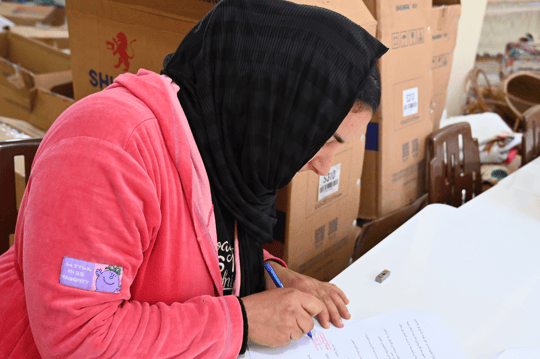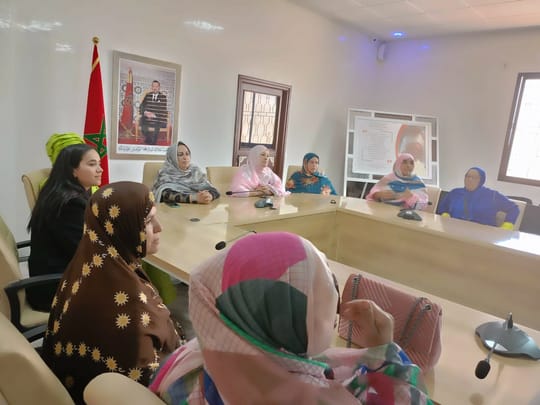Sanad Association launched its community initiative

Two years ago, Halima, 52-years-old, had a severe headache. She lives in the Dakhla municipality. “As all the women do, I took some medicine that we have usually in our home and I drank some traditional drink. The pain didn’t stop but it increased day after day,” she said.
Hamila’s headache continued like this for a week. One day, “I lost concentration, then found that I had a cancer which needed an urgent surgery,” she explains. The surgery was successful, and now Hamila advises all women to never ignore their health problems.
She is now participating in a program with 84 other women from Dakhla, run by the Sanad Association and funded by the Middle East Partnership Initiative. In Arabic, “sanad” means to support or to be someone that can be leaned on. The association has taken on this role by providing accessible, close healthcare services for marginalized people, like these women, through this community initiative.
The association aims to protect the rights of women and promote their status within society. This includes, but isn’t limited to, social justice, equality in the right to economic and social participation, and raising awareness of women' s rights, combating sex-based discrimination and all forms of violence that prevent women from participating in public life and decision-making.

Photo of Tidarguit Tasamoh Alliance meeting with local authorities, taken by HAF.
Four days of workshops were conducted in the two centers of the L’entraid Nationale. Nurses led these workshops, with a focus on healthy lifestyle and diseases that women are vulnerable to, like chronic illnesses, sexually transmitted diseases, high blood pressure, diabetes, skin diseases, and stress aggravation. Prevention of these conditions, as well as treatment and the follow-up procedure with doctors were also discussed.
Participants were given time to share their experiences and ask questions about their healthcare. This platform also enabled the nurses to hear about these womens’ experiences with healthcare in the past, enabling them to better understand how they can minimize fear and anxiety during check-ups.
Through community initiatives like this, women gain knowledge to control their own lives: they know what to do and where to go when they need medical help, and how to set boundaries. By empowering them and providing the know-how, women gain the autonomy to work independently, make choices in life and in society.
Exchange activity strengthens capacity of couscous alliance
Poverty is one of the main issues in the Bir Grandus Commune. The cost of living, especially rent, is very high in the region, and there is a lack of services, so residents travel 288 km to Dakhla to utilize public services. In order to aid with this, women’s cooperatives were created that center around making couscous.
The Tidarguit Tasamoh Alliance was formed on account of there being five different women’s cooperatives in this region, with the intent to strengthen collaboration. However, the alliance’s members found it difficult to manage operations, and lost hope in their vision for shared success.
With the support of HAF program funded by the Middle East Partnership Initiative and the project of the women in the alliance, a meeting with the local authorities was scheduled, and the people in the Bir Gandus commune were elected to attend as representatives of the alliance. The result was an exchange, where 14 women from the Tidarguit Tasamoh Alliance traveled to the Laayoune-Sakia El Hamra region to meet local civil society organizations carrying out the same activities. The aim of this visit would be to exchange expertise and experiences, in hopes of reigniting inspiration in the Tidarguit Tasamoh Alliance.
On the first day, the National Initiative for Human Development (INDH) showed the women projects of the other women in the province that also focus on making couscous. Members of the Tidarguit Tasamoh Alliance learned how they had developed their production.
On the two other days, the Tidarguit Tasamoh Alliance met with four other women’s cooperatives and learned about the technical methods of making couscous, how to manage members, and how to distribute tasks to avoid internal conflict. All of this served to strengthen and improve the alliance’s function as a team.
Members of the alliance returned to the Bir Grandus Commune with a renewed vision of success. They now had the practical tools for financial management, internal organization, and efficient operations. Now, this initiative is in the process of organizing its first community fair and holding a seminar for women leaders in rural areas.